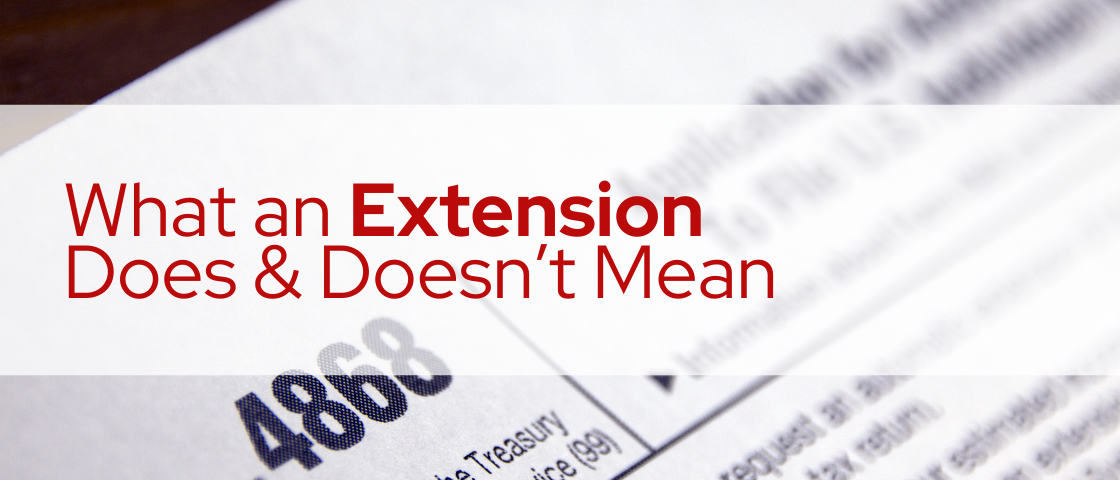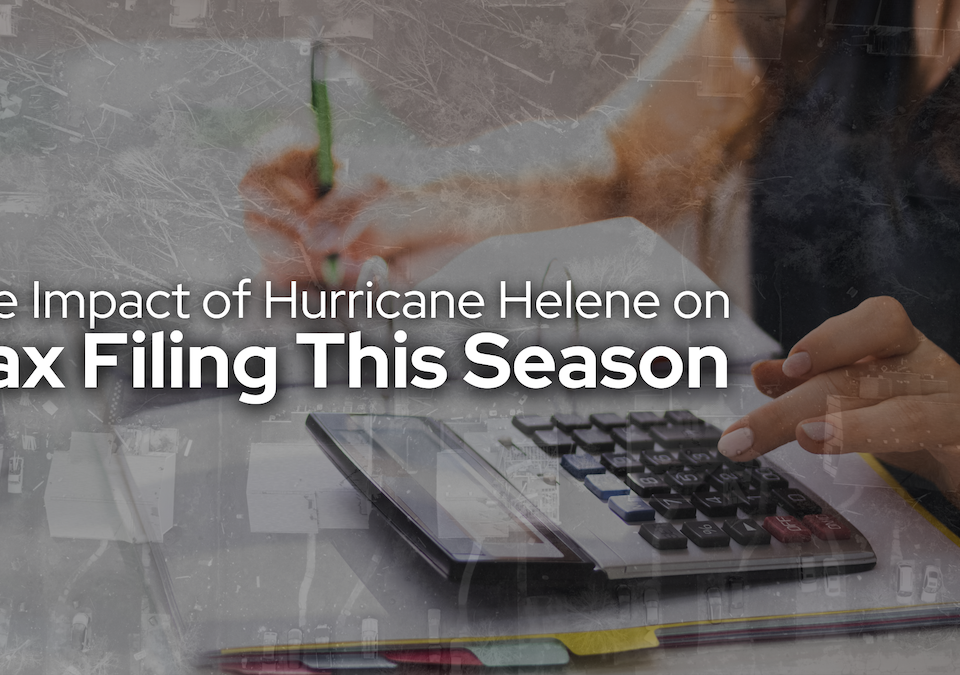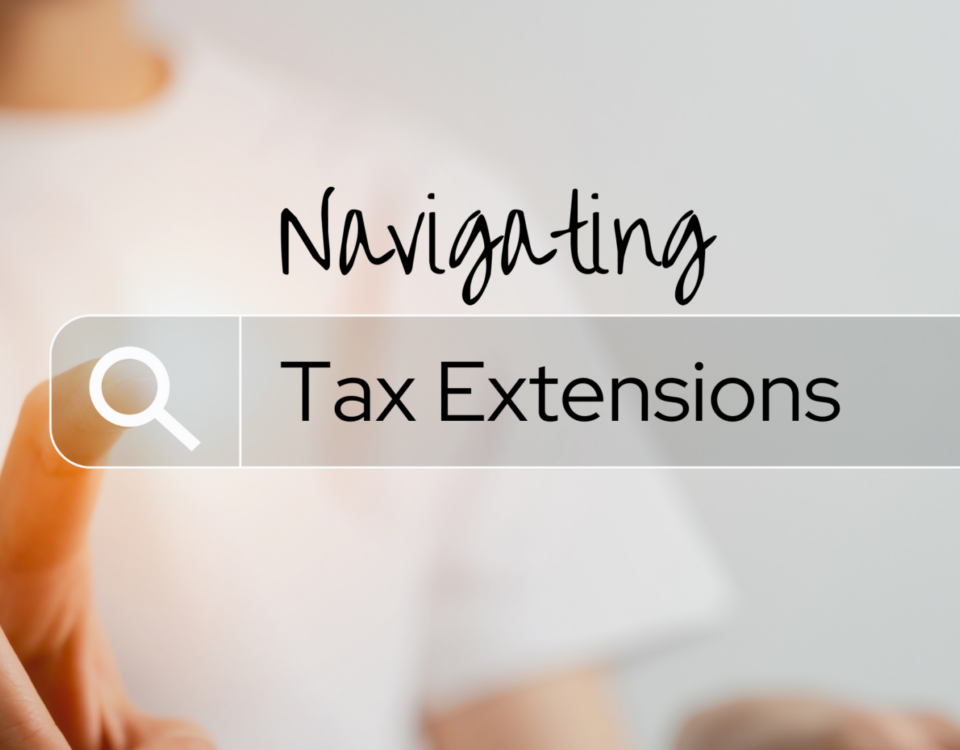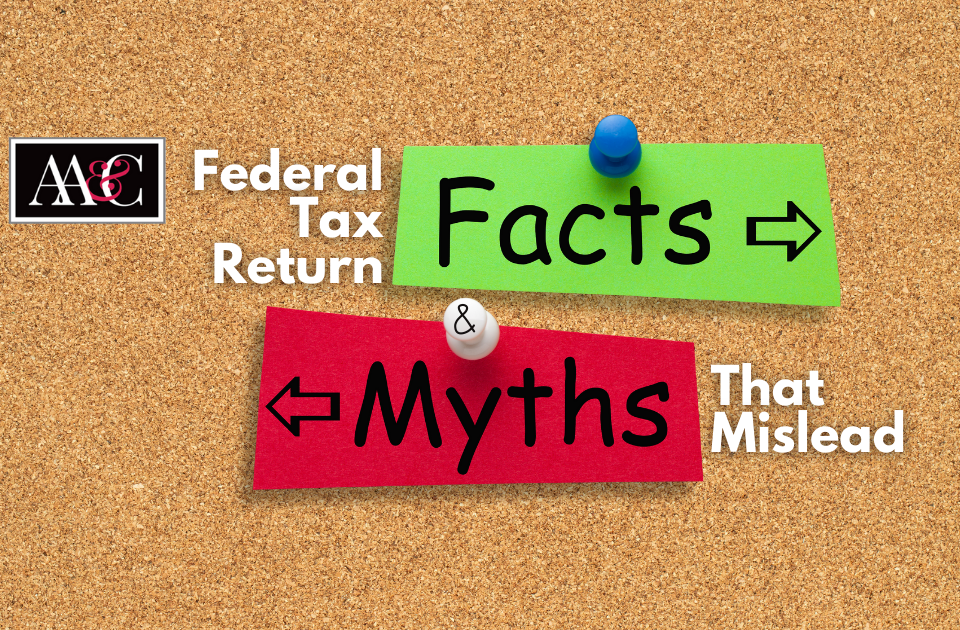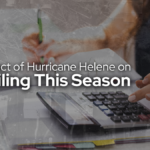
The Impact of Hurricane Helene on Tax Filing This Season
March 16, 2025
Why Personal Service Still Matters
May 15, 2025As tax season reaches its peak, some individuals and businesses are considering filing for an extension. While extensions are common—and often necessary—what an extension does and doesn’t mean is frequently misunderstood.
In the wake of Hurricane Helene, many of our clients have received automatic relief from both the IRS and the Georgia Department of Revenue, which further complicates what “tax deadline” actually means this year. So, let’s break it down.
What an Extension Does Mean
More Time to File
A tax extension typically gives you until October 15, 2025, to file your federal tax return. This is a valuable option if you’re waiting on documents or need more time to organize financials.
Protection from Late Filing Penalties
Filing an extension protects you from the failure-to-file penalty, which is significantly higher than the failure-to-pay penalty. This can help you avoid unnecessary fees if you need time to get your return right.
Allows for Accuracy
Extensions give you the breathing room to ensure all your forms (like K-1s or corrected 1099s) have arrived, and that your return is complete and accurate—especially important if you have investments, rental income, or own a business.
What an Extension Does Not Mean
It’s Not an Extension to Pay
The biggest misunderstanding: an extension does not give you more time to pay your taxes. You still must estimate and pay what you owe by April 15, 2025, to avoid late payment penalties and interest.
It’s Not a Delay for State Returns in All Cases
Although many states follow federal guidelines, this isn’t always guaranteed. Georgia typically aligns with IRS extensions—but if you’re filing in another state, double-check their rules (or ask us to help you verify).
It’s Not a Red Flag
Filing an extension is common and doesn’t raise your audit risk. In fact, rushing to file an inaccurate return could draw more scrutiny than taking the time to get it right.
Hurricane Helene Relief: What You Need to Know
The IRS and Georgia Department of Revenue have both granted extended filing and payment deadlines for individuals and businesses in federally declared disaster areas due to Hurricane Helene. This includes nearly all of our clients in Georgia and surrounding states.
Here’s what this means for you:
You now have until May 1, 2025, to file and pay for most individual and business tax returns originally due between September 25, 2024, and April 15, 2025.
This includes 2023 tax returns that were on valid extension through October 15, 2024.
The extension also applies to quarterly estimated tax payments, payroll tax deposits, and other business-related filings.
Penalty relief may be available for late deposits and payments due to the storm.
This automatic extension provides additional time to manage your tax situation without the usual pressure—especially helpful for those still recovering or managing insurance claims, property damage, or other disruptions.
Important: If you are in an affected area, you do not need to apply for this disaster-related extension—it is applied automatically based on your address.
What You Should Do Now
Even if you’re covered under the Hurricane Helene extension, now is still a good time to:
Gather all W-2s, 1099s, and relevant income documents
Estimate your 2024 tax payments (if applicable)
Communicate with us if your tax situation has changed due to the storm
Review deductions or losses that may now apply due to storm-related damage
The extension gives you time, but proactive planning can prevent surprises and reduce stress.
We’re Here to Help
We’re already working closely with our clients impacted by Hurricane Helene to navigate the disaster relief extensions and plan next steps. If you’re unsure what applies to your specific situation—or need help estimating your tax payment—we’re just a phone call or email away.
info@augustacpas.com
706-288-2000
Our experts at Anderson, Adkins & Crawford can make sure you’re on track, even with the shifting deadlines.

